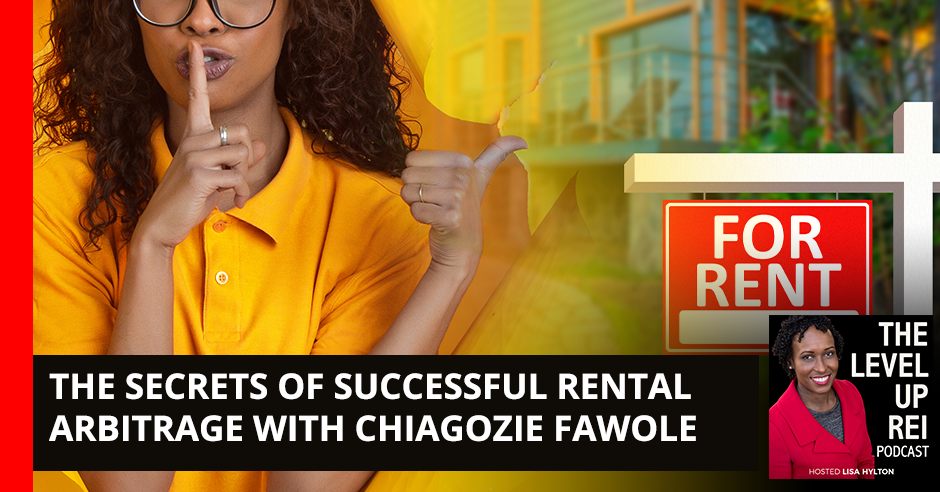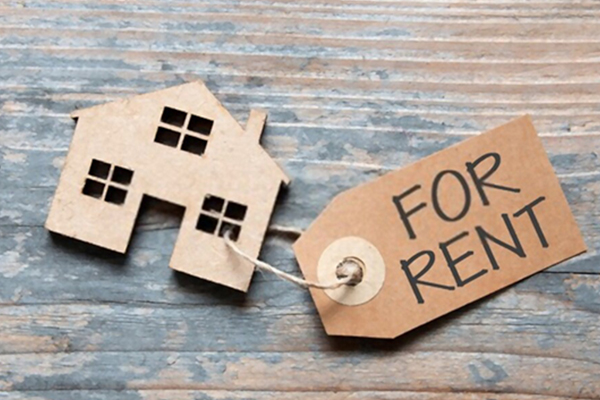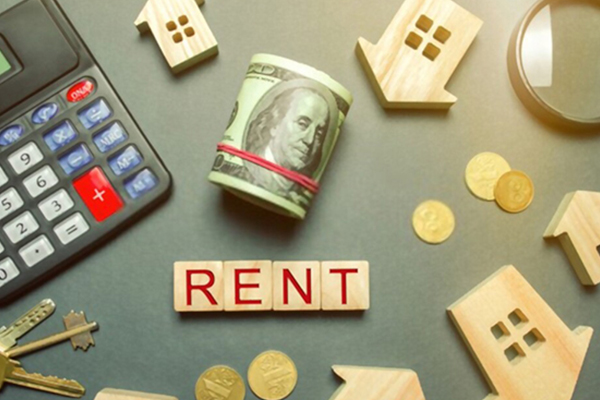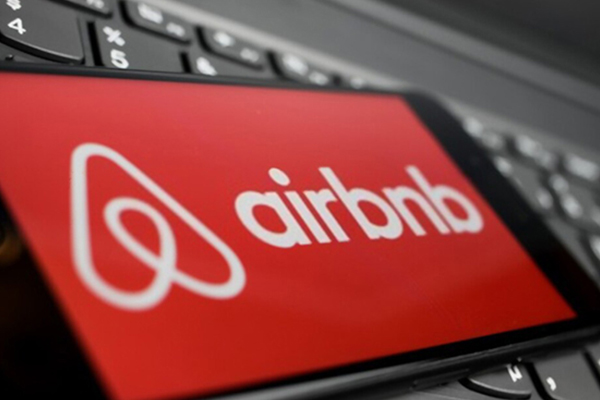
More and more people are looking into short-term rentals as a potential revenue stream. One of the ways to get into short-term rentals with relatively lower costs is through rental arbitrage. So, how does it work, and how do you make money? Today’s guest is Dr. Chiagozie Fawole, Pediatric Anesthesiologist, real estate entrepreneur. She is also the founder of SavvyDocs in Real Estate, helping other young physicians establish their financial runway to grow their net worth over time using Real Estate. She joins Lisa Hylton to share the secrets to having a successful rental arbitrage business. Cashflow is key, and Chiagozie gives tips on how, where, and when to invest in properties you’re renting.
—
Watch the episode here
Listen to the podcast here
The Secrets Of Successful Rental Arbitrage With Chiagozie Fawole
I’m excited to have on my show, Chiagozie Fawole. She is a Pediatric Anesthesiologist and real estate entrepreneur. She has ten short-term rentals that she has acquired with the arbitrage method remotely. She started her real estate journey during residency some of the busiest years of medical training. She’s built a portfolio of traditional rental units in a few years and has amplified cashflow by turning properties she does not own into short-term rentals. She’s also the Founder of Savvy Doctors in Real Estate. She helps other physicians get started generating meaningful income from real estate. She’s based in the suburbs of Syracuse, New York where she lives with her husband and three girls.
—
Welcome to the show. Thank you for coming on.
I’m very excited to be on.
To kick things off, share with my readers a little bit about how you got started back then in the residency. Why you even take on real estate investing while you’re in residency?
I lived in Brooklyn, New York at that time and I was in my third year, technically, of residency. I was watching TV one day and I saw Tarek and Christina on HGTV’s Flip or Flop turn a profit of $60,000 in one episode. I thought to myself, “This guy is literally just made my entire annual salary without taking any overnight call, without having to work on weekends, and miss family events.” I got hooked. That took me down like a rabbit hole. I eventually found BiggerPockets and all of that. I’ll say the rest is history. That was how I got started, watching TV in my living room.
Can you talk about some of your early real estate investment strategies? What ignited the desire for Airbnb and then Airbnb arbitrage?
The first deal that I did was a remote flip. I lived in an expensive area so anything that I can do with other people being on the ground, I tend to move towards. That first deal was not profitable. It was more of an education than a profit. After that one, we set out to get a more stable type of deal by getting a twelve-unit apartment complex. I didn’t have cash at that time myself, I had to get a deal that was big enough that I could get other people’s funds in and somehow be in there somehow. That was why I went on to do syndication with that one. After that first indication, my husband just didn’t like the idea of really managing other people’s money.
Mindset is the one thing that will stop you if you let it. Share on XWe agreed that we’d just do our own deals. We ended up focusing more on small multifamily properties with the BRRRR strategy where you buy, rehab, rent, refinance and repeat and use the same pile of cash. We recycled funds into multiple small multifamily deals. That ended up being what our focus for the next years. In 2020, I got pulled from work mid-pregnancy on a whim. I literally went to see my OB and he was like, “We’ll have you in the operating room on Wednesday.” I was like, “No, I’m going to call on Thursday.” He goes, “No, you’re not. Not in this situation.” In that moment, it hit me that as a professional woman that can be still of childbearing age and with all these other things that could be happening, while it’s nice to build the long-term generational wealth, what you really need stat is cashflow now.
Being that I had spent time helping other doctors, I was like, “I need to find a model that helps people with faster cashflow than the long-term generational wealth,” which is important but In my books, at that point, was not the first thing so I looked into different models. Wholesaling was one of them. I got a VA that was doing cold calls and all of that. I don’t really enjoy the offer part having to get them to accept the deal that was low when you knew very well. It’s a great model. I love it as a mental model but me doing it, it just didn’t happen.
It ultimately hit me that way. You’ve been avoiding the short-term rental things now for a long time. I liked the idea of it but I just hadn’t done it. In 2021, I said, “Let’s do it.” We started and in the first month, we got an opportunity to pick up four units. I took two and gave my sister one. The next set we got was a pack of six. Two more later and in three months, we got 10 and I’m like, “This is awesome. Everyone needs to do this.”
Can you talk about what is Airbnb arbitrage?
I like to take a step back and reframe it and just call your rental arbitrage because the beauty of this method is that it’s not just Airbnb. When people hear Airbnb, they think, “I have to be at people’s beck and call every single hour.” There are different ways you can do the same thing. At the core of it, rental arbitrage does in real estate what people do in regular commerce. You buy something at a price, let’s call it wholesale price. You mark it up, package it and sell it retail. That’s arbitrage in regular commerce. We’ve simply, in real estate, used the same theory or plan to find a property that’s being rented at a particular rate, furnish it and put it on the market for people who are willing to pay a higher amount for the convenience that you offer them.
A regular rental, for example, may go for sale, let’s say $1,500 as a regular long-term rental. If you put it on the short-term rental market someone is willing to pay you $100 or $150 a night multiply that by 30 days so you’re talking somewhere around $3,000. Guess who gets the spread in between? The person who made it a short-term rental. It’s not just your rent that you’re thinking about. You add your rent plus your operating costs and then you will know what your profit is. Not every city will work for you. The idea is that you find a neighborhood, a city or a market, at least that has low enough rents on the rental side and high enough rents on the short-term rental side spread in between.
To dive into this a little bit deeper. We have the rental income that’s coming in minus the costs gives you ultimately your profit. Can you talk about some of the costs with the rental arbitrage strategy that investors who are thinking about this strategy need to think about and consider?
The first big one obviously is your rent. You do sign a lease usually anywhere from 1 to 3 years. Three years preferred if you find someone that’s willing to let you lease for that long and then your operating costs will be things like your internet, utilities, any streaming services that you want to offer say Netflix and insurance. I tell my people to always carry insurance. It must be the doctor thing and me. We don’t like liability at all. Those are the operational ongoing costs. There are also your cleaning fees.

Rental Arbitrage: At the core of it, rental arbitrage is just what people do in regular commerce. You buy something at a price, mark it up, package it, and sell it.
You goal is not to create a second job for yourself, obviously. You would likely pay people to come clean for you. If you’re using Airbnb, it allows you to tag on a separate cleaning fee but you want to make sure that you factor that into your numbers as well, to ensure that you’re accounting for the cleaning fees because those add up. These are just the regular monthly operating fees, not counting your initial costs, which are different.
If someone is thinking about setting up one of these, how much money they should think about having to set up because I’m assuming furnishing the place?
There are different unbuckets that you should think of when setting up. The first will be your first month’s rent or a security deposit. Depending on who you’re leasing from. They may or may not have a security deposit component. The second unbucket will be your furnishing. You need to put furniture in there, get your big-ticket items, your beds sofas, utensils, towels, linens, all of that. The third unbucket will be the basic setup fees for your utility. Sometimes the utility company will charge a deposit, maybe $100 or $200. The internet company will charge a deposit or a setup fee. Those are the three big unbuckets on the front end.
These will obviously vary by market. Depending on what your rent is, how many bedrooms and bathrooms. I tell people that if you’re going to be starting this, you’re thinking somewhere around $7,500 to $10,000 for an average one-bedroom, one-bath apartment. Say you’re doing you’re going on the higher end and getting a big house with more luxury items. That number goes up. You also have some people who can be really savvy and find the furnishing sale on the Facebook marketplace that can drop that furnishing number low. If you can do that, your cash-on-cash return goes like whoosh. My sister was able to furnish her unit for $2,400. When she did that, I was like, “Girl, where were you? You are furnishing my unit.” She did that. On the back end, she was able to get a three-month booking for almost $9,000.
What makes a property a good property? That $9,000 booking is a combination of the property, location and tenant. Can you talk about as someone going in, how they need to think about location of where they’re choosing and who they’re trying to serve?
This is where you see that arbitrage is so real estate because the location is key. As you’re researching a market, one of the first things you want to know is what is going to bring someone here. This doesn’t mean that you can only do arbitrage in touristy destinations. That’s not what I’m saying but there needs to be something that pulls people from wherever they are into a temporary situation to book your place. Different unbuckets will be your vacation travelers or vacation rental-type properties. Say your travel healthcare professionals, traveling nurses, traveling doctors or insurance people.
These aren’t travelers. In Texas, they had a power outage. Some people were really affected and literally displaced that insurance companies had to put people in temporary housings situations. You can’t really predict when there’s going to be a disaster but that’s another unbucket that people catered to and work travelers, those traveling for work. Those are the big three unbuckets of travelers.
As you're researching a market, one of the first things you want to know is what is going to bring someone here. Share on XMore conferences are opening back up. They are probably looking for these cities that have conference hubs and being able to buy properties that are in that area that would be beneficial for those kinds of attendees.
The first unit that I got was one minute from the convention center and it’s been booked. Even with COVID just recovering, it’s still a prime location. The first thing that I tell people is to circle on a map where the travel magnets are. Is there a convention center? Is there a hospital? In downtown, for example, where are the main spots that people are going to? See how you can position your short-term rentals that will tap into the different travel traffic.
Can you talk about some of the mistakes and misconceptions people have about this strategy?
One question that I get a lot, which is if a landlord knows how much money you’re making from this, what stops them from turning around and doing it themselves? To that, I usually say if Airbnb and short-term rentals are not a new strategy themselves. If they wanted to do short-term rentals, they would have already done it themselves. You move from just plain old, passive, real estate investing to more of a hospitality-type business. The landlords who aren’t doing it right now don’t even want to because they don’t want to deal with having to answer a guest in the middle of the night or do any of that. That’s the first one. The piggyback of that is why would any landlord want me to do this with their property?
The fact is it’s not many landlords that would but your goal is to find the one that would. It’s a mindset perspective thing. Are you going to focus on the 100 that say no and ignore the 1, 2 or 3 that will say yes and working with whom you can build a portfolio? The ten units that we got are with 3 or 4 entities. One landlord can give you 3, 4 or 5 units if they want to work with you. They’re like, “I have ten units. Do you want the whole thing?” If you find that one landlord. That mindset block of no landlord will want to do this with me. The answer is no. Some landlords just want passive income.
You become their better tenant because you are the one tenant whose goals are aligned with theirs because it is the streets out there. You need to keep your listing in perfect condition to get those great ratings and all if you’re an Airbnb, for example. Their property is being kept in for sale condition on a daily basis. Tell me which tenant is doing that for you. You’re making money from the unit so you have a way to pay them.
Can you pivot a little bit into talking about building a strategy like this remotely? What were some of the things that you needed to put in place to achieve building this portfolio, ten of them, from a distance?

Rental Arbitrage: [Rental arbitrage] is different from just plain old passive real estate investing to more of a hospitality type of business. So, the landlords who aren’t doing it now probably don’t ever want to.
I talk about mindset a lot because it is the one thing that will stop you if you let it. The first thing was understanding that, “Even if it were next door, I wouldn’t want to be there doing any of it myself.” Once you get that out of your head, you realize the whole country is opened up to you because then you’ll be forced to put people in place. The first thing I put in place was someone to help me go see the properties. For my first two units, my sister was on the ground. She helped me with that.
She’ll literally just go and FaceTime me. I’ll look at the place. “It’s not that great. Let’s move on.” She had a full-time job so I didn’t want to burden her. Once I knew it went up to scale, I went out on a Facebook group and literally advertised for an assistant. When I advertised for an assistant, I knew that I had to scale because I knew I had to pay the assistants. A lot of people don’t even go as far as doing that. I know people who just fly in. Once they do a virtual tour of the place, they’ll fly in, verify that they like everything.
They just manage it remotely without really having a dedicated runner. Some people will use their housekeepers and cleaners to be their point. They just pay them a little extra that they have to go run or something with a guest or something like that. There are tools that you use to communicate with your housekeepers and find housekeepers. Once you can find a good housekeeper and/or a handyman, those are the two main people that you need on your team to be able to operate this from a distance.
Is there any systems or processes? You have your handyman and housekeeper but you also use maybe Slackm texting them or WhatsApp in order to make sure that they’re turning units when they need to be turning them. That way, it’s prepared for the next tenant and all of that.
Different platforms have come up. One of them being TurnoverBnB. The key thing is to find something that links to your Airbnb calendar so that you don’t have to be the one contacting them to say, “We have a checkout.” For example, I got a booking but I don’t have to tell the cleaners to do anything because they will see it on your calendar by tomorrow when they check out that they have work.
Anything else that we didn’t cover about this strategy that you think is beneficial to share with people who are thinking about doing this?
One, on pitfalls. The one pitfall that is important to note is not to overpay. It’s the same thing in regular acquisitions. If you overpay for a property, it wouldn’t mean that you can sell it on the back end, the same way with arbitrage. When you’re searching for a landlord that will agree, at some point, you may run into somebody that says yes and you may be so excited, “I finally had a yes.” If you forget to run the numbers just because you got a yes, you can overpay and then end up maybe breaking even or not making any money. That’s the first tip.
The second will be not to over furnish because it’s a cash-on-cash game. You don’t have to own the assets. Putting in every single amazing thing to make the place look magnificently luxurious, you have to watch the numbers. It’s cash-on-cash and you want to create a product that is marketable, beautiful and can give you great reviews. Number one, there are no six stars on Airbnb. It’s a five-star rating. Watching your costs, not to overdo it and to have a great product but without overdoing it.
Keep watching your costs to have a great product but without overdoing it. Share on XI’m wondering, though, are there times when people also get in trouble along the process in the execution after they have purchased the property? Any other instances that you think that people need to think about after they’ve been acquired and they’re in the processing managing space like having backup cleaners, maintenance people in case people aren’t available or if something comes up?
I liked that you mentioned having backup people. I tell my people you need to have access to at least three cleaners. You will go through quite a few before you find 1 or 2 that stand out. When you first hire anybody on, you want to go back and see what they’ve done. Have your boots-on-the-ground person. Do a FaceTime walkthrough with you. If you can find people that have Airbnb short-term rental cleaning experience, that will make your life a whole lot easier because you don’t have to train them on what to do. If you find someone who does the cleaning, you want to specify. I have a crazy story about this.
One of my cleaners brought on a new person onto her team who was experienced with cleaning regular homes. I didn’t know this because she didn’t tell me she was new. My next guest comes in and tells me, “There was food in the fridge.” I’m like, “What? We had cleaners go through it.” I’m trying to figure out where the ball was dropped. It turns out that the regular cleaner came and cleaned but when you’re cleaning regular homes, you don’t take out the food in the fridge. She didn’t know. We have a whole checklist that they have to walk through and I made sure I told her everything like, “If you have somebody new, please let me know. That way, we can also follow-up and ensure that our quality stays.”
To wrap things up here, I know that you also have an Airbnb course that helps to teach people how to do these things. Can you talk a bit about what inspired you to build a course? What are some of the key things that people will be able to take away from it by doing it?
I was already helping my colleagues get started in real estate and had focused heavily on the method I used, which was buying, rehab and all of that. When I started doing the short-term rentals and I saw how quickly it scaled, a lot of my clients were like, “We want to learn this.” Rather than tell them on the coaching call, I was like, “I’ll do those modules,” so I did. After building out the modules, I’m like, “I might let other people in here as well because this is so good.” I started offering it as a full-on accelerator.
That will enable people to come in and get their business to the rental arbitrage off the ground in a shorter period than trying to do it on their own.
There are YouTube videos and lots of things that you can do. The value that I find with being in a coaching environment is doing stuff, not just knowing. I’ve given you the basic nuts and bolts but the inertia, the self-doubt, “I’m taking a leap. I’m signing a lease,” and being in an environment where everyone is signing a lease is not a big deal. When you’re seeing other people share their wins, it’s priceless.

Rental Arbitrage: You want to create a product that is marketable and beautiful and can give you great reviews. But there are no six-star reviews on Airbnb.
Where can readers go who want to learn more and find more about you, your course and everything?
The best link is SavvyDoctors.co. What I usually do with that link is I point to wherever I want people to go. A more direct link to get to talk with someone on my team will be WorkWithMe2021.com/book.
Thank you for coming on. Can I just say that I met you in one of those Facebook groups and I tell people all the time like, “You never know when someone is reaching out to you to have a conversation?” What could happen because we started chatting and I started learning about what you did? I said, “I should have you on my show. Let’s get you on the show. Let’s get you talking to people or helping people because this is not my strategy but I know a hot strategy.”
Many people are trying to jump into Airbnb right now. Not everyone is in a position to buy a single-family home or a duplex or whatever to do the Airbnb on it. If you’re in a position where you can do the arbitrage method on a rental and leverage Airbnb to get people into your rental, why not? Hopefully, this has given delivered value to you and be able to take it to the next level. Thank you so much.
Thank you for having me. I had fun chatting with you.
Thank you.
Important links:
- Chiagozie Fawole
- Savvy Doctors in Real Estate
- BiggerPockets
- TurnoverBnB
- WorkWithMe2021.com/book
- Accelerator – The SavvyDoc Accelerator
About Chiagozie Fawole
 Dr. Chiagozie Fawole is a Pediatric Anesthesiologist and Real Estate entrepreneur.
Dr. Chiagozie Fawole is a Pediatric Anesthesiologist and Real Estate entrepreneur.
She got started in Real Estate during residency – some of the busiest years of medical training. Having built a portfolio of traditional rental units in a few years, she now amplifies cash flow by turning properties she does not own into short term rentals.
As the founder of SavvyDocs in Real Estate, she helps other physicians get started generating meaningful income from Real Estate. She is based in the suburbs of Syracuse, NY, where she lives with her husband and three girls.
Love the show? Subscribe, rate, review, and share!
Join The Level Up REI Podcast Community today:

Recent Comments